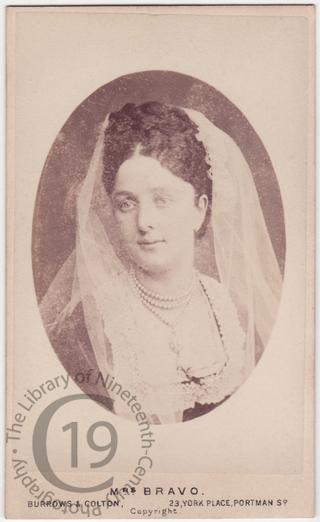
Mrs Bravo
In 1876 a young barrister named Charles Bravo was poisoned by potassium antimony at his south London home, the Priory in Balham, sparking a case which was covered in great detail by the press, titillating the prurient interests of the Victorian public
At first it was assumed that Bravo had committed suicide, since he remained strangely calm during his agonizing death, which took several days. (It is now known that this calmness is an effect of potassium antimony). Suspicion was aroused, however, at the coroner’s inquest when the court heard evidence of Mrs Florence Bravo's earlier relationship with Dr James Gully, who had performed an abortion on Mrs Bravo. It also emerged that the couple had often argued and that Mrs Bravo had spurned her brutal husband's sexual advances.
Another suspect was the housekeeper, Mrs Jane Cox, a widow with three children whom Bravo was about to sack to save money. It was reported that she had been evasive on the night of the murder, and that she had told police that Bravo had said he had committed suicide, which he had not.
No one was ever convicted of Charles Bravo’s murder. One book (Death at the Priory by James Ruddick, published in 2001) argues convincingly that the murderer was Mrs Bravo, and that Mrs Cox must have at least covered for her, and perhaps actively helped.
Photographed by Burrows and Coulton of London.
Code: 123934




